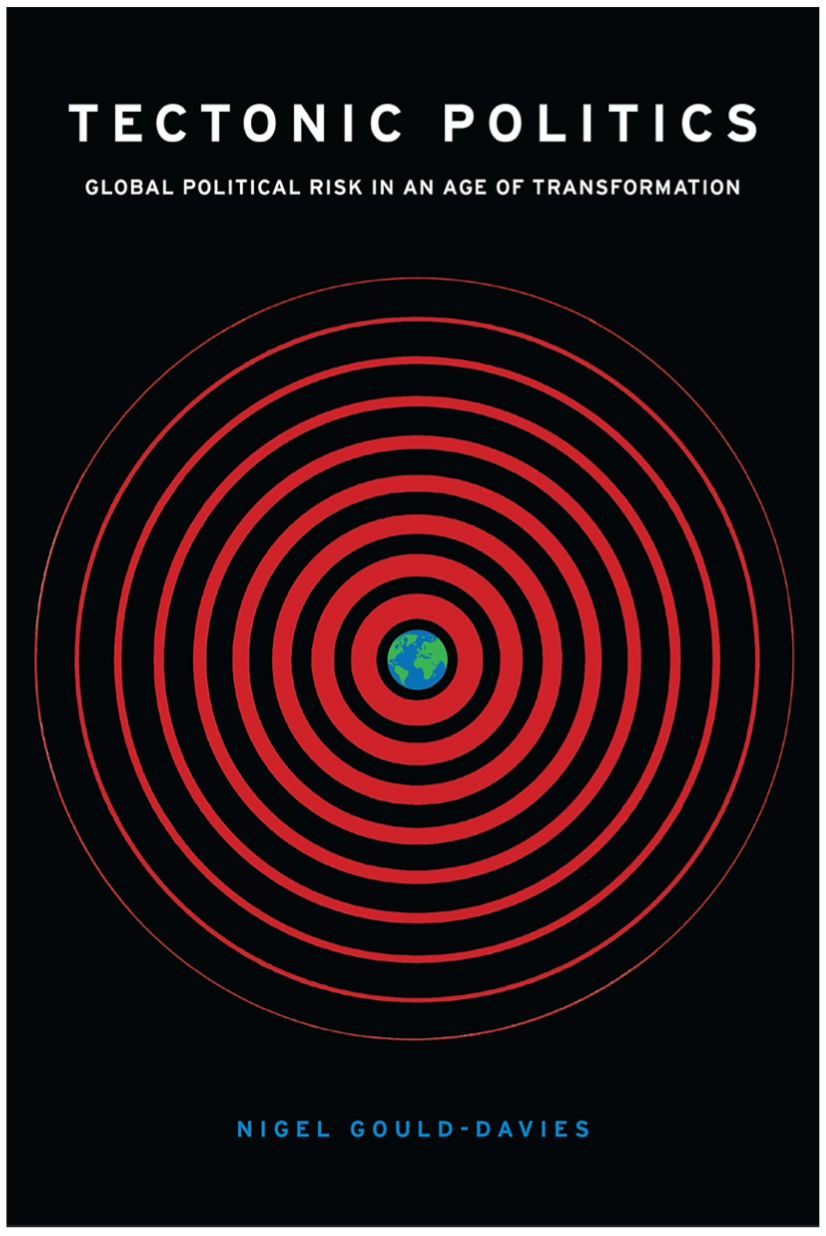review / Emili J. Blasco
The discipline of "political risk" can be conceived in a restrictive way, as usual, referring to the prospective analysis of disruptions that, by states and governments, can affect political and social stability and the regulatory framework and, therefore, the interests of investors, companies and economic sectors. This conception, which globalisation also leads to call "geopolitical risk", is only a part - in fact, the minor part - of Nigel Gould-Davies' approach, who by putting the adjective "global" in the degree scroll of his book is referring to a conceptually more general political risk, merged with fields such as corporate reputation, public affairs and business diplomacy.

The author claims that the relationship with the environment is essential for a business and calls for a company's management to always have someone manager of engagement (which we could translate as involvement, commitment, participation or partnership): an engager who has the same level of authority as the engineer who knows how to manufacture the product and the salesperson who knows how to monetise it; someone specialised in "persuading" external actors - governments and civil society groups - of the company's goodness, creating "alignments" that are beneficial for business. Engagement at both the national and international level, if the activity or interests go beyond one's own borders, giving rise to "corporate diplomacy", as the current "increase in political risks means that a company needs a foreign policy".
Gould-Davies sees these more political issues not as an "impertinent intrusion" into markets, but as something endogenous to them. So the business, in addition to attending to production and marketing issues, must also pay equal attention to a third dimension: engagement with political and social actors to avoid or overcome risks that it faces in that external sphere. This is "a third activity and a third role to carry it out: a new political piece in the mechanism of value creation".
The author emphasises management on the present and the very short term future deadline, and downplays the importance of short and medium term prospective analysis deadline which has been the preserve of political risk analysts. He complains that the latter have paid "too much attention to prediction, with its frequent disappointments, and too little to engagement"; " engagement, on the other hand, requires relatively little prediction beyond the short deadline". "There is a lot of unbalanced political risk activity, producing a lot of analysis and prediction, but much less guidance on what to do".
Moreover, unlike the usual political risk analysis, which is more focused on the actions of states or governments, the concept the author uses extends very specifically to the pressures that can arise from civil society. "The new political risks emerge from non-state social forces: consumers, investors, public opinion, civil society, local communities and the media. They do not seek to challenge ownership or rights to use productive assets. They do not seek to destroy, take or block. Their focus is narrower: they usually seek to regulate the terms on which production and trade take place (...) Their motive is usually an ethical commitment to justice and equity. Their goal is to mitigate the wider adverse impacts of corporate activity on others; they are selfless rather than self-serving".
Gould-Davies notes that while previously the norm was government threats in development or emerging countries with less stable societies and unconsolidated rule of law, today pressures on business are increasing in developed nations. "The likelihood of major conflict and de-globalisation is increasing, but more importantly, its impact is shifting towards the developed world," he writes. Moreover, the fact that there is less and less social peace in Western countries is an increasingly disturbing element: "Sustained civil violence in a highly developed country is no longer a black swan, but a grey swan: improbable but conceivable; possible to define, but impossible to predict".
By focusing on management in the present and characterising the activity as engagement, which is in itself very communication-centred, Gould-Davis stretches the classical concept of political risk, which has been more oriented towards analysis and foresight, too far. In doing so, he treads on activities that are becoming widely known development for their own sake, such as corporate communication and reputation or influencing regulatory issues through lobbying or public affairs management functions.